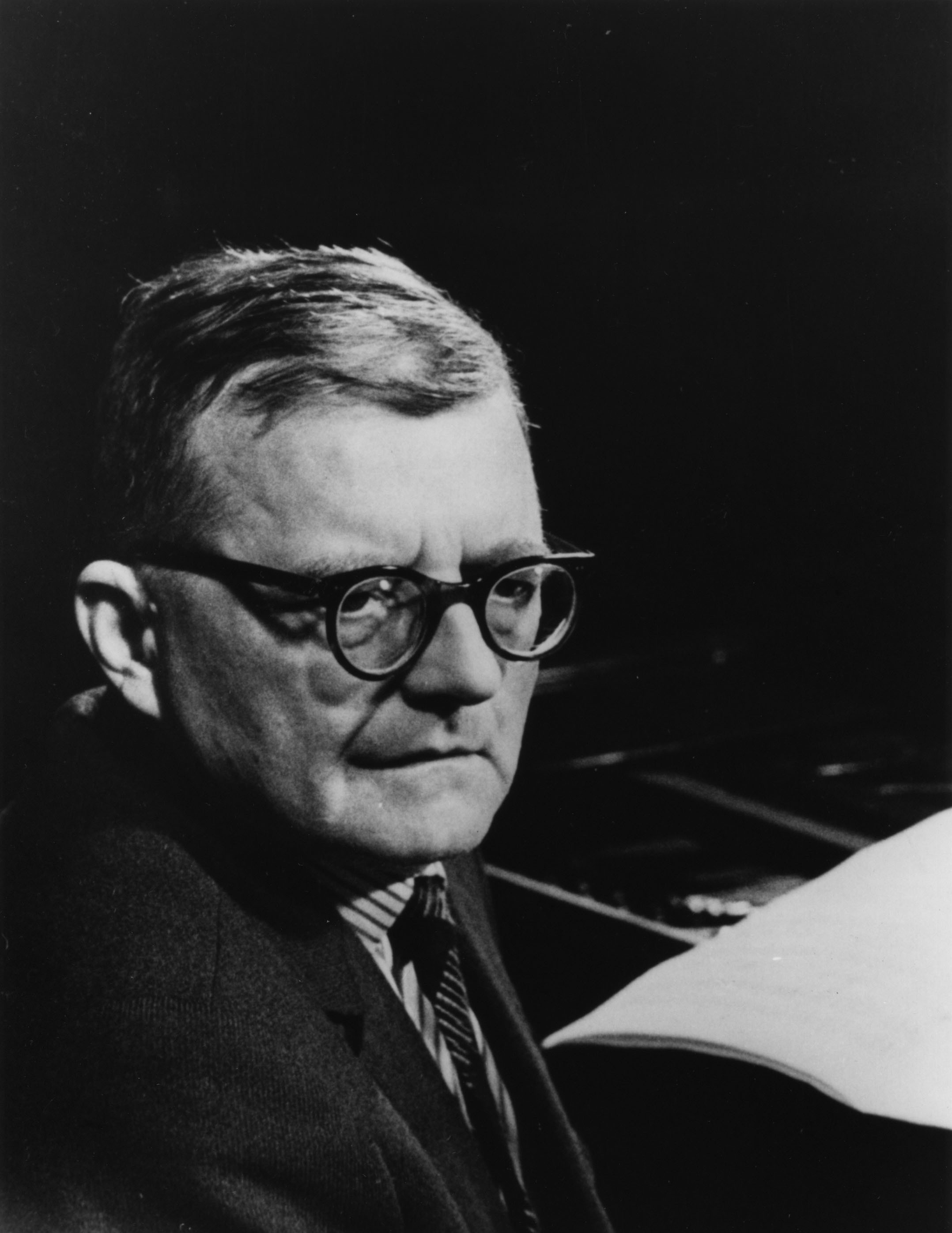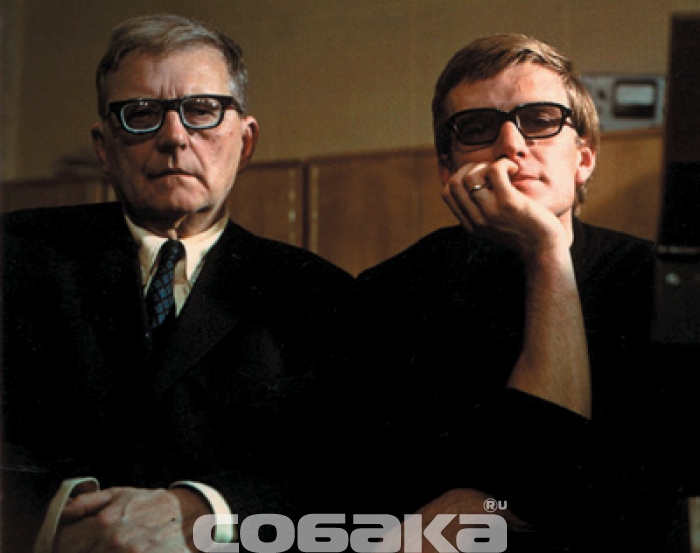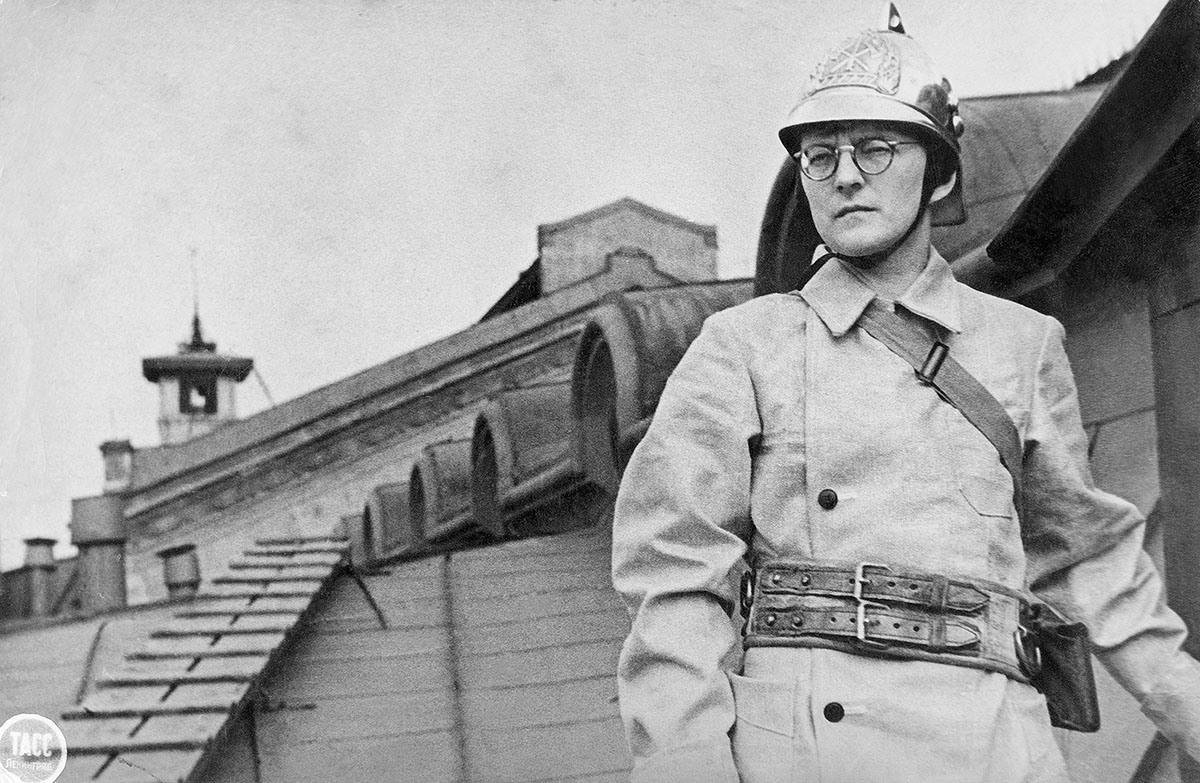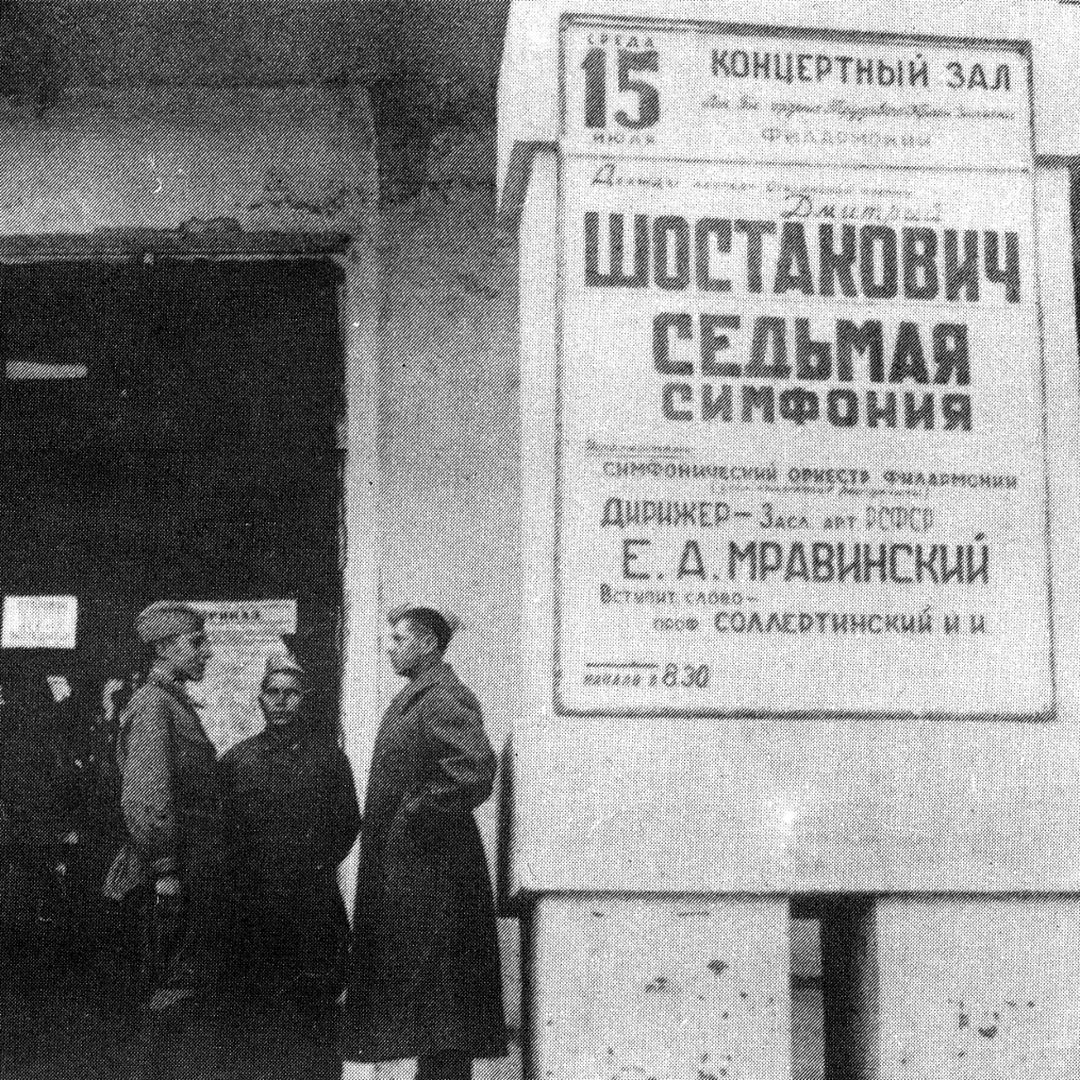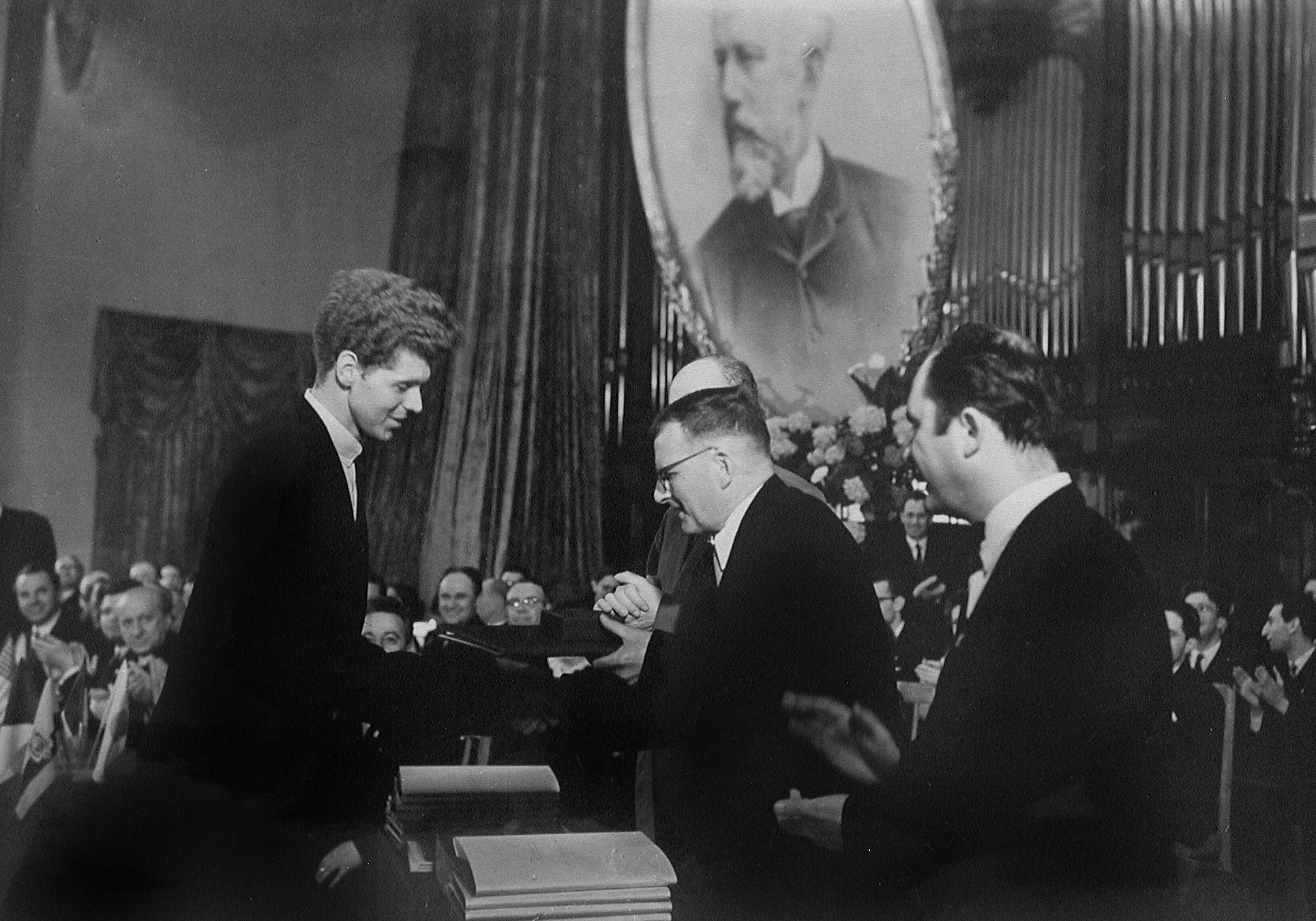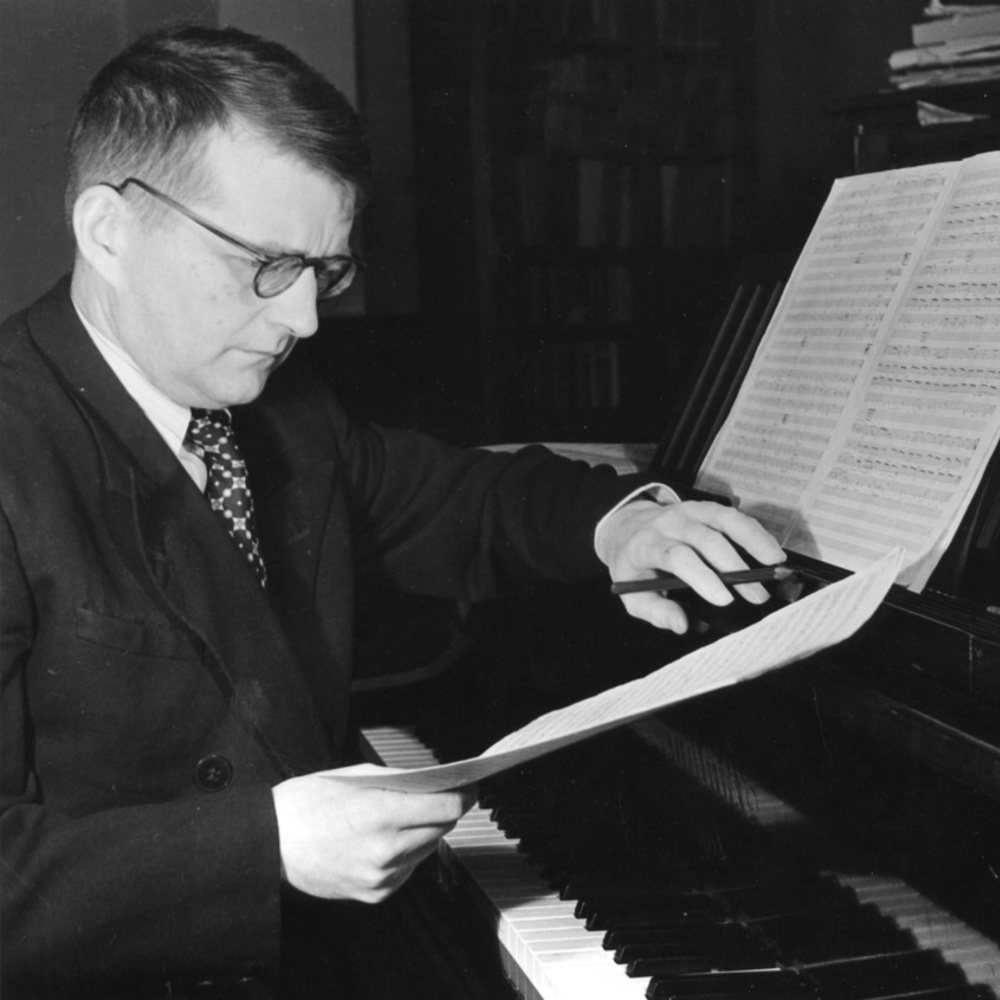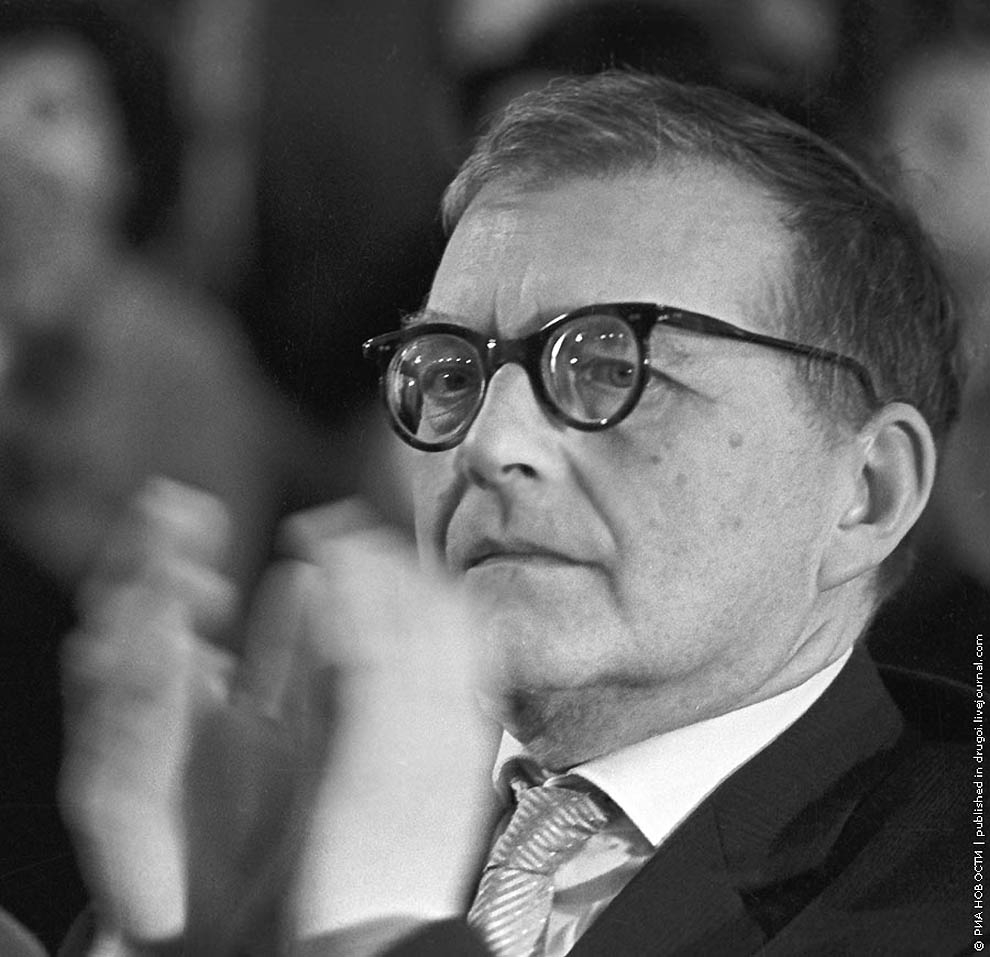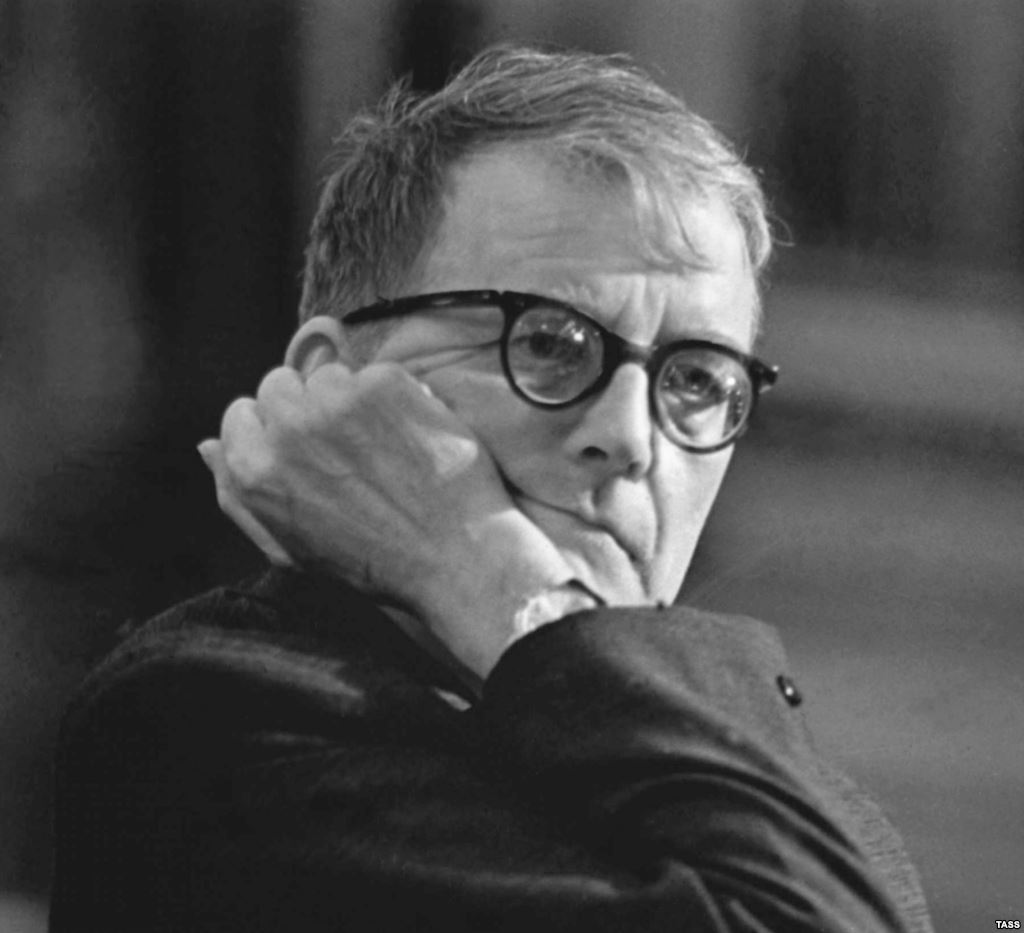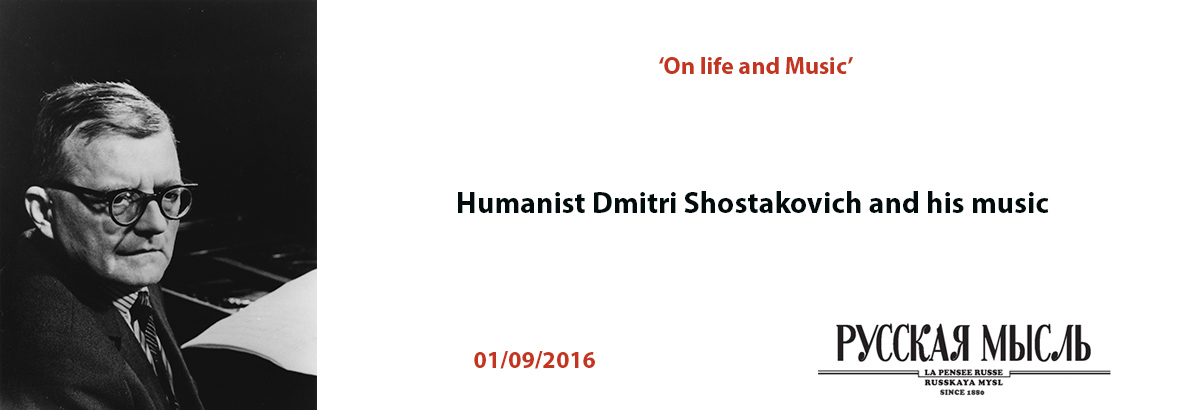Interview by Vladimir Shuliakovskii and Vitalii Vasiliev
25 September 2016 marks 110 years since the birth of Dmitri Dmitrievich Shostakovich.
Memories of the great Russian composer, D. D. Shostakovich, are shared by his son, the outstanding conductor, Maksim Shostakovich.
– Maksim Dmitrievich, tell us about your childhood. As a child, who related to you the most closely?
– It was, of course, my family: each of my grandmothers: and grandfather: my cousins: and also Komarovо, where we were taken for the summer. We also had a beloved dog who was called Tomka. Of course, there are a lot of childhood memories. Take, for example, the time that a German arrived at our country cottage. He was amongst many of the military who built the Primorsko Highway. At first we were shy and frightened because he had on a fascist military cap and jacket. He entered, sat down, and someone gave him something to eat. And then father explained to us: “Look, he doesn’t want anything from us. There is nothing to be frightened of. He is an ordinary person. He has children and a family. – He has lost it all because of the fascists, unhappy man.’
– That is to say, Shostakovich was not a humanitarian according to official spin but according to the essence of his consciousness?
– Of course. And music, above all, was about humanity. And also Shostakovich had a strong conviction, that music could teach one to listen. If you listen correctly, then you will begin to understand what the author wants to say. It is a language, only without words.
I remember when we were still in Kuibyshev, a quartet arrived at our house. They rehearsed through the night until three. I sat in an old armchair and listened. It was the first time that music became a thing of interest to me. Besides that, papa always took me to concerts. I remember 1946 – the rehearsals and the premier of the Eighth Symphony. It made a huge impression on me. It was the first time that I realised that I wanted to become a conductor. Mama strongly supported me in this. She said that, as there was so much music around, it was my duty. In general, I gradually learnt to listen and understand music.
When I was still studying in school, we often went as a family to concerts. Afterwards we discussed who played, how they played: what was good, not good and what was bad. All of this I ‘kept in mind for the future’. In this, father’s authority was absolutely unquestionable.
All the while, there was ordinary life: our courtyard, boys, football, and races on someone’s shoulders. We ran to the other side of the street because there they’d made an ice rink. When Stalin drove to his First Dacha, there would be the sound of klaxons.
– Along Kutuzov Prospect?
– Yes, along Kutuzov. You know, we all understood. But it was as if between the lines.
– A sinister shadow that was present?
– I do not want to judge those people who cried when Stalin died. But it was not like that for us. Zhenia Chukovskii, the grandson of Kornei Ivanovich Chukovskii, my old friend liked to repeat: ‘Where does the Motherland begin? From the images in my childhood primer’ and he would add: ‘from what our parents said which could never be repeated outside our four walls’. We understood very well that we had to hold our tongues. It was better not to reiterate what was said at home, otherwise you could disappear as so many, did. Many good people disappeared in the GULAG, and amongst them were people that my parents knew.
– And in which year did you leave Leningrad?
– In 1941. After that the war began. We were evacuated to Kuibyshev. I remember this very well because it was the first time that I said the letter ‘R’. As I remember it now, it was at the house on Great Pushkarskaia, where we lived. I asked: “Papa, if suddenly a German appears when we are flying, and suddenly there’s a ‘Raaa-ta-ta-ta-tat’: and there it was! Out came the letter ‘R’. And then came the evacuation, a huge number of wounded, covered in blood, bandages on their heads and limbs. Of course, all of this was horrible. All of this is reflected in the Seventh Symphony. I remember very well its first performance in Kuibyshev, and especially the theme from the first part – the episode of the invasion – it made a huge impression on me.
I remember how terrible it was for us. We were afraid of the fascists. We were afraid that they were coming. It was just like the snare drum in the Seventh Symphony which starts very quietly and then seems to get even closer and closer. And in the night, when everyone was lying asleep, I felt the nearness of this danger, and I would start to cry painfully. But my nanny, who was a Believer (her room was filled with icons, and an icon-lamp was always burning), would get up and she would come to me and say: ‘Oh little Maksim, poor thing, don’t cry.’ Then Praskovia Ivanovna would read The Psalms to me, and only then would I fall asleep.
– Perhaps you remember, about twenty years ago, in the West, a book came out by Solomon Volkov in which a reference is made by you concerning the episode of the Seventh Symphony which speaks, not to the invasion of the enemy but to the embodiment in sound of Stalin’s repressive machine.
– Yes, of course, I know of this interpretation. There is probably a lot in it. But first and foremost, it is the war. If you take into account that Shostakovich is a master of grand generalisations, then, it is my opinion, that this is a war symphony. It is about tragedy. It is about those wars which were, and which will be: and it is about that particular war. It is about the generalisation of catastrophe, in which humanity is periodically overthrown: war, pain, blood, death. But, at the same time, it is about the dream of a bright and wonderful life. All of it is there in the music. My father, of course, knew what was happening in the country. He lost not just a few friends and close acquaintances. Besides this, many of our relatives were repressed.
– You talked about your nanny who was a Believer, and that there were icons. How did Dmitri Dmitrievich himself feel about it? How did he position himself in relation to Russian Orthodoxy?
– You know, right up to the Seventh Symphony, he dreamt of writing a requiem. So, in this case, what does ‘position’ mean? And papa was from an Orthodox family, he was christened.
– Christened?!
– Naturally. Even my father’s baptismal document was found. I have a copy which states who the godparents etc. were. And in letters, for example, he wrote: ‘Today I was at the Cathedral of Christ the Saviour, I prayed for all of you.’
– So Shostakovich paid visits to the Cathedral?
– At that time practically no one went to church. Shostakovich was a public figure, a deputy of the Supreme Soviet. But, nevertheless, at Easter, my mother always went to the early morning service, and we always celebrate Christmas. And, at Easter, without fail, father would phone-round to his friends and acquaintances who were believers and say: ‘Christ has Arisen!’
I once gave my papa a bronze crucifix which, until his death, stood on his bedside cabinet. And above the bed hung a (not very large) reproduction of Titian’s painting: The Tribute Money (Caesar Denarius). Papa often said: ‘But look at what a bright, pure face Christ has. And below is this dark repellent Pharisee who shows the money and says ‘And how then will you pay the tributes?’ And Christ answers: ‘Give to Caesar what is Caesar’s and to God what is God’s’. So father was saying that Christ is purity and truth, and the Pharisee is deception and every kind of grossness.
– And he talked to you about this?
– Why wouldn’t he? When some people would say: ‘So really, what was in the music that he wrote? – Some type of oratoriа: “Above our Motherland the sun shines…”, and all that kind of thing: that’s why he was given honoraries’. – To Caesar – what is Caesar’s, and to God was is of God, but, all the same, music remained. Good music: Shostakovich could not write any other kind.
– In general, this is a very interesting question: the mutual relationship of the Empire and the Artist. Sometimes, for a creative person, a feeling arises that certain situations, which involves the press, are simply a requisite pressure from the outside.
– You know, in your words there is a deep and, unfortunately, a sorrowful truth. Such cataclysms can bring forth interesting and creative bursts. For example, the First World War and the Silver Age: at that time Stravinsky and Prokofiev: the poets Briusov and Blok: the philosophers Berdiaev and Merezhkovsky were working. You see, this is what happened after such a huge bloodbath. When there is a lull, we see that nothing outstanding in art is produced. Although if we think of the music of Mahler, then there is something of sorrow in it. And in Brahms, is there not? This is human life, it is always and at all times multi-faceted. Unfortunately, there was sorrow then and now. In the main, we can talk, not about a direct but, about an indirect influence of the Empire on the Artist.
– However, in Shostakovich’s life there was just such a critical moment – the reactionary article in the newspaper Pravda: ‘Muddle Instead of Music’ on the opera ‘Lady Macbeth of Mtsensk’, which, at that time, almost represented a death sentence.
– This was unadulterated injustice.
– And who were guests at your house?
– You know that our circle was very interesting. Mama was a famous physicist. She worked on the study of cosmic rays. She had a lot of interesting work, and took many field-trips to high-altitude observatories and scientific stations where they captured cosmic particles. Father often visited Mama on her trips. There were often famous physicists at our house. Landau and Kapitsa came, and Migdal was there. You know, the scientists at that time were very interesting. I noticed that they all knew about: biological discoveries: cybernetics and genetics. They helped each other. For example, if money was given to the Armenian Institute for the study of a question in physics, then, under the guise that it would be necessary to physics, the laboratory would be given over, ‘unofficially’, to the study of genetics. Genetics were forbidden. And really, the new cosmic and atomic era followed on much of what was invented in the post-war years. All of it was extremely interesting.
And father’s friends came to see him: musicians and the cinema directors Arnshtam, and Kozintsev and Trauberg who frightened us by reading the English novels about Dracula. We couldn’t sleep after that. Lev Oborin, David Oistrakh, and then the young Rostropovich all came and gathered together. Father’s students would be there and always had something new to show. Besides this, a lot of records were sent from America and Europe to my father, and he was aware of everything that was happening in the world of music. We also listened to a lot of it. For example, in my childhood I loved Gershwin.
A serious test for all of us was in 1948. (In February 1948 a directive of the Central Committee of the Bolshevik Party (TsK VKP(b)) was issued in which Dmitry Shostakovich, Sergei Prokofiev, Aram Khachaturian, Vissarion Shebalin, Gavrill Popov, and Nikolai Myaskovsky were accused of ‘formalist perversions and anti-democratic tendencies in music which are alien to the Soviet people and its artistic tastes’. This was a terrible affair, it was an injustice which we all felt. At that time I already understood the importance of Shostakovich as a composer: the greatness of his works, and that it took no little courage for him to survive all of it. But there was another terrible thing: former friends crossed the street when they encountered us. It was a really difficult time. It felt as if you were somehow branded.
– Did this period last long? How did Shostakovich survive it?
– I think that his creative work saved him. Straight after the directive was issued he began to compose something new.
– He didn’t become depressed?
– No.
– However, if you look at the well-known facts, Shostakovich bore the first ‘blow from the Party’ with difficulty.
– Yes. But that was in 1936. Father was much younger.
– And straight afterwards his greatest symphony appeared.
– Yes, the Fifth.
– Again the Empire and the Artist?
– Yes, but this view makes me wince. Really Shostakovich targeted his music towards the next century; towards the future. Only a lack of comprehension could explain the reception of the finale of the Fifth Symphony as an apotheosis: – as an anthem to the Soviet system. It is absolutely not this. I think that the Fifth is a heroic symphony. By means of the last powerful blows of the snare drum he says: ‘No, I will go my own way, I will never be dissuaded. I despise all this evil, and, yes, there will be Light!’
– This recalls the bright image of Christ in Titian’s painting about which we were just speaking.
– You are absolutely right. It was not for nothing that for so many years this image hung above Dmitri Dmitrievich’s bed. He always looked at it.
– And whom did you study music with? Did your father pay attention to you as a teacher?
– He created small piano pieces for us. My sister, Galia, learnt the first of them. They started with her first because she is two years older than me.
Later papa would always laugh, remembering how Galia cried while practicing a jolly little gallop or polka because she did not want to play. But I protested against him teaching her instead of me. – And how! Besides this, I discovered that if you crawled under the piano and pressed on the pedals, then a sound would be released. So I pressed these pedals so that Galia could not play. Then I entered the TsMSh (Central School of Music, Moscow Conservatory) and I also worked on father’s small pieces.
– Who was your teacher?
– Elena Petrovna Khoven. She was like a grandmother to us. We benefitted from her exceptional kindness. Besides school, she would work with us even at home. It’s possible that it was more comfortable for her. And if you came to Elena Petrovna and said: ‘I am hungry’, she would straight away start to prepare something for you to eat.
At the end of school I asked father to stage a piano concert. He honoured me with it, and I was his first performer. I also played his work at the end of school, and also upon entering the conservatory where the wonderful musician, Yakov Vladimirovich Flier, happened to be in the class. At the beginning I only studied in the piano faculty. Then I began to combine it with the conducting faculty which soon closed. Then I moved to Petersburg and studied with Nikolai Semenovich Rabinovich. When the faculty in Moscow again opened, I returned and continued my work with Gennadii Nikolaevich Rozhdestvenskii. Then I entered the Moscow State Symphonic Orchestra as an assistant to Veronica Dudarova. The orchestra travelled the whole country. We were everywhere – Everywhere. Then there was the competition for Gosorkestr (the State Orchestra). I won this competition and became Svetlanov’s assistant. With this orchestra I travelled all over, literally all over: America, Japan, Canada, Mexico and Europe. When the contracted period as assistant to Svetlanov ended I began to work with the Central Television and All Union Radio Orchestra, where I soon became the leading conductor.
– And, at school and at the conservatory, with whom did you make friends?
– I was lucky with friends. Later, many of them became wonderful poets, writers and artists. I became friends with Lyosh (Alexei) Batalov, with Iliusha (Ilya) Kataev, the son of Valentin Petrovich. I spent a lot of time with Andrei Tarkovsky.
– In those youthful years could you see in him the person that was to be?
– Yes, of course!
– And which books did you read in childhood and in your youth? Were there things which influenced the formation of your consciousness?
– In the first place, it was the library which my father had. He often recommended something to read. Once he told me that his revulsion at betrayal arose from reading Prospero Mérimée’s story ‘Matteo Falcone’. Do you remember when the contrabandist hides in the hay, and the police and carabinieri, who will catch him, start to dangle the gold watch in front of the boy and say: ‘So, tell us! Where is he?’ And the boy gives him up. Because of this, the father shoots the boy.
– The child?!
– Yes, his son: for that betrayal. Although, this is really terrible.
– And Dmitri Dmitrievich gave you such a story to read?
– Not only to read – he gave his own commentary.
– And was he betrayed many times?
– But I have already said: people crossed the street from fear that they would be seen coming up to Shostakovich and shaking his hand.
– But were there friends who were not afraid of disgrace and, quite the reverse, who supported Dmitri Dmitrievich?
– Of course there were. But there were those who were not shunned by virtue of slander and denunciation. I know this for certain.
– Besides your father’s music, in your youth, which music did you like: what was your preference?
– Well, of course, the great classics: Brahms, Mahler, and other pillars of symphonic music.-Although each leading composer-symphonist is not on the same level, I think that there is a unique chain. Shostakovich will always be linked with his former colleagues. It is not possible that suddenly something completely new and original should appear in an empty space. In the end, music should be simply good and show talent. In which genre and when it is written – this is yet another question.
(From material in: Russian Music Society)
